The Week in Politics' Aine Lawlor spoke to Jamal Habbachich, who leads a council of 22 mosques in Molenbeek, a suburb of Brussels that has been closely associated with jihad.
Several of the militants in the Paris attacks of 13 November were based in the suburb.
Mr Habbachich told Aine about the social problems in Molenbeek and how society needs to take action to address inequalities that make it easier for people to be radicalised.
Aine: We’ve just spoken with the Mayor of Molenbeek [Francoise Schepmans] and she was saying that there’s a problem here in this district: an integration problem. Is it worse now than it was before?
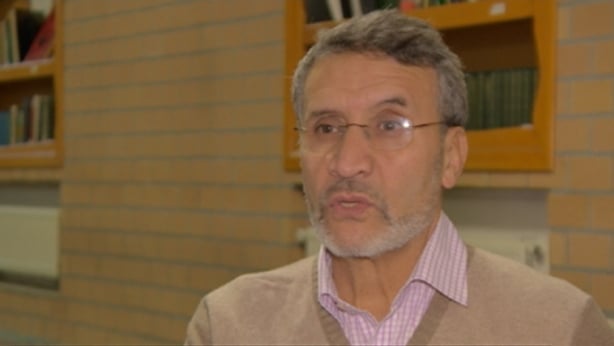 Jamal Habbachich: No, there have been problems for a long while. It did not start today. In every society where there are difficulties, there are problems.
Jamal Habbachich: No, there have been problems for a long while. It did not start today. In every society where there are difficulties, there are problems.
Today, we have a discrimination problem in Molenbeek. Two young people out of three are unemployed.
Three out of five haven’t finished their studies, or dropped out before getting their diploma. We’ve got a severe lack of training courses.
The problem is that there is no structure to welcome these young people, to listen to them. There is no dialogue with these young people.
These youths live in big families, getting by on one salary, either that of the father or mother, so they live in poverty and precariousness. That is one of our problems: a social and socio-economic problem. And so, these young people are in trouble, they are unemployed, they’ve got… They’re experiencing a lot of frustration, a lot of problems.
These young people also have the problem of lacking in intellectual education. They don’t have a very high intellectual level. They live on the margins of society.
So that is one of the first problems. When people talk about, when the mother talks about integration, how do you integrate young people for whom nothing is done?
You give them small projects, when there are thousands who need supervision, training, work, and to be listened to. Are there spaces here in Molenbeek where young people can be listened to? No.
So it’s up to politicians now, not up to these young people. You can’t ask families to do what they cannot do. You can’t ask mosques to do what they cannot do. The local mosque does not have the means nor does it have the tools to supervise these young people.
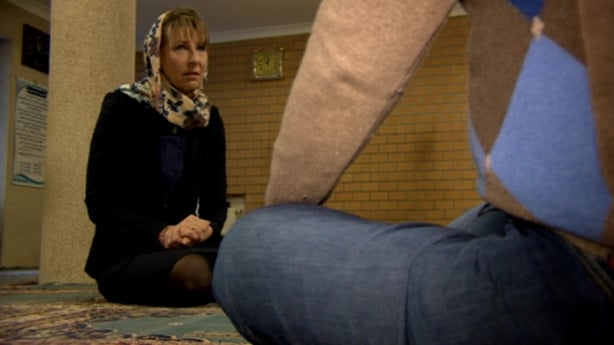 Aine: The Mayor also said that there was a problem with the fact that imams here in Europe come from the Middle-East, that we now need a European version of Islam. Do you agree?
Aine: The Mayor also said that there was a problem with the fact that imams here in Europe come from the Middle-East, that we now need a European version of Islam. Do you agree?
Jamal Habbachich: Well, there’s a contradiction here, let’s be honest. Imams… Here in Belgium, we’ve got 300 mosques, 22 in Molenbeek. The imams in those mosques don’t come from the Middle East, they come from Turkey or Morocco, some from Pakistan or Turkey.
These imams have another problem, that of language. One in two does not speak French, nor Dutch, nor English. So we have imams in their mosques, who preach in Arabic, whose words are then translated into French.
So, the Middle East? There aren’t any imams from there. But there is a particular type of discourse that comes from the internet, from preachers transiting through Europe, who come from the Middle East, and that discourse is very dangerous.
The religious discourse that comes from Morroco, from Turkey, isn’t dangerous. It’s a traditional, archaic discourse. But the discourse found on social media, on the internet, or in Middle Eastern books? That’s a radical, orthodox discourse.
So - it isn’t coming from the imams, it’s the message coming from cable channels, TV channels received everywhere in Europe – there is a radical discourse coming from the Middle East, but the imams who come from the countries I mentioned earlier have very straightforward views, they are not radical.
Aine: And Saudi Arabia with its [hardline version] of Wahhabi Islam?
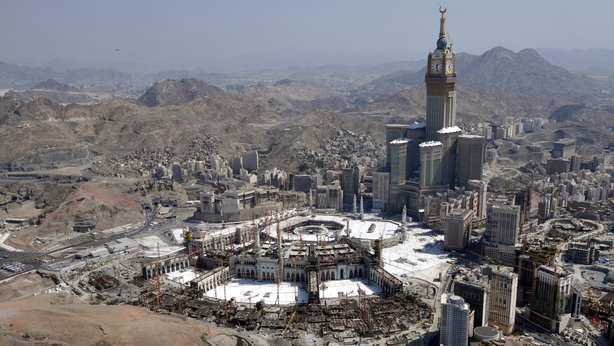 Jamal Habbachich: You know, in Saudi Arabia, they’ve chosen this way of living Islam. It’s the country’s choice.
Jamal Habbachich: You know, in Saudi Arabia, they’ve chosen this way of living Islam. It’s the country’s choice.
But when they export their version towards Europe, we reject it, because it’s not made for us. Islam, in Saudi Arabia, lives under certain circumstances, in state politics, in state structures - Islam is made the instrument of the state everywhere, and we respect that choice.
But exporting it here? That’s dangerous. For example, you know, on certain cable shows, people ask questions. The question comes from Brussels or London on women’s clothing, what women should wear. The imam answering the question will say: a woman must completely cover up, etc etc. That’s a ruling that does not concern us.
But for people who are feeling a great void, and who are living in this time of globalisation of all conflicts, where Earth has become a small village, so to speak, the rulings coming from the Middle East can be intoxicating, they act like a drug on Islamic life here.
The rulings, the person who gives a ruling, fatwa, we call those fatwa, an edict or ruling on Islam or on a certain phenomenon, the person needs to live in the country, know its problems, its circumstances, the larger context, and he must especially understand the end goal and the ruling’s objective.
You can’t take an edict from Lebanon, or Arabia or Egypt, and apply it here: it can’t be done. For a long time, even in England, there were imams in the big city parks, declaring rulings, sometimes very harsh ones that clashed with the British minds.
Well, these rulings can now be found in the minds of certain young people here, through social media and cable channels found in the Middle East, discourses about the Syrian conflicts, Iraq conflicts, a conflict in Egypt, and people copy and paste it.
Aine: You know the families here, whose sons have gone to Syria, some of whom died there…
Jamal Habbachich: Yes, these families remain in a state of chaos, of drama. Their son was just here then disappeared, they find out on the news that he was in Syria. And then they find out he’s dead.
We’ve had this problem here - the problem has been here for more than three years, because at the start it was a political problem.
The Syrian rebellion started, and everyone was supporting it, Arab countries, the United States, European countries, for more than a year and a half.
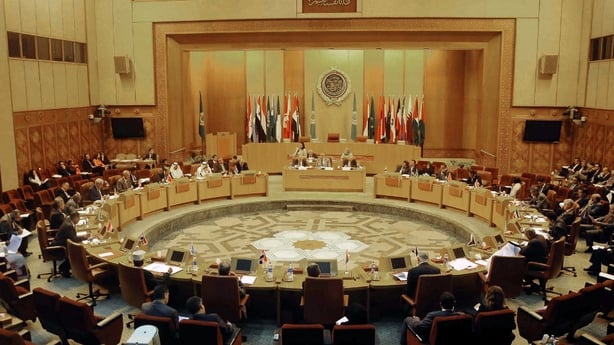 The road to Syria was wide open. There were no security checks for the first young people who left for Syria in that year, when the whole world stood with it.
The road to Syria was wide open. There were no security checks for the first young people who left for Syria in that year, when the whole world stood with it.
So, these families have been running around, Belgium did a lot in 2012 and 2013 to help these families, but when your child is in a country at war, what can you do? What can the state do?
So you wait for the youth’s return, the ones who come back need to be supervised, sometimes even isolated from the rest for a while, so the families have been through … They’re deeply wounded, you don’t see these families nowadays. Because they don’t know who they are anymore, they’ve lost part of their identity. It’s very hard for these families.
And sometimes no one talks about that. Whereas everything that happened in France after November 13th … On that night, dozens of families here did not sleep. And in the morning, things got even worse, because for two weeks here, we’ve had hundreds of journalists, police everywhere, people have experienced a terrible psychological situation, terrible pressure, because they’ve learned things they themselves had no idea about.
The folks here, they are simple folk, not complex people – I’m speaking about the families - they’re wondering, asking themselves questions, so their suffering endures. And today we’ve got another problem, which is the mistrust towards Muslims.
You may know that what we lived through after the London bombings, we’re going through it again here in Molenbeek, which has now become a community facing lots of difficulties, but where we’re trying to re-establish a connection with everyone. It will take us years.
Aine: What do you want politicians to do?
Jamal Habbachich: Politicians, in our country, there are men and women who have really done good work in Belgian towns. There are others who, I’d say, remain at a distance from certain communities. They must come closer and give the same chances to everyone.
Give each citizen, whatever their faith, Muslim, Christian, Jewish or other, Buddhist, give everyone the same chances. Today a lot of young people have diplomas, have vocational training, and they have to run around for a year or two to find a job.
You’re an engineer, you don’t find any work, and you’ve got to do another job, just to survive. So, politicians need to meet their obligations, assume their responsibilities, try to create harmonious frameworks for integration, create spaces for dialogue, for listening to and training these young people.
They must not let them down. They must give them things to occupy their time with, give training to the one that wants it, and give work to the one that wants work.
Take-away stereotypes, clichés, and prejudices, try to behave with everyone in the same way. It is hard, because politicians here always have that problem of withdrawing into communitarianism, into nationalism and populism, there are political parties today, look at Belgium, when a country experiences a lot, it’s hard to find balanced social politics.
Aine: We now see [European] countries that say: no more refugees. They say: People from Syria - I don’t want to help them. What does Europe have to do?
Jamal Habbachich: It’s very complicated, very difficult. When you have lots of issues here that you can’t resolve. Immigration, refugees - it’s problematic.
There are countries that have the necessary space to solve the problem. There are big countries, I’m thinking of Germany, even Italy, that, in spite of their difficulties are countries with a social culture of welcome.
Even in Belgium, we have welcomed refugees for years; we have never refused to take them in. But with refugees, Europe must understand that the problem must be solved over there, at its beginnings, at its root.
Some problems must be dealt with in Syria, in Iraq, in Turkey. Syria is now a worldwide problem. And today, we can also work towards agreements with neighbouring Arab countries.
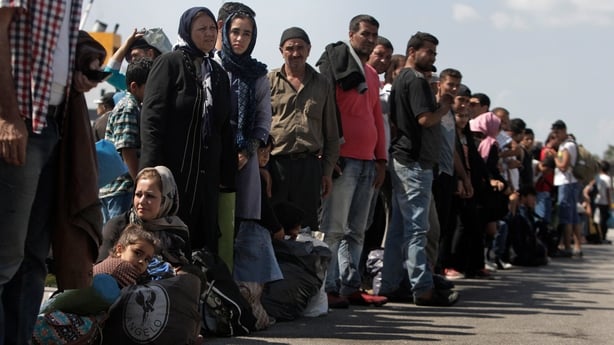 Refugees can go to the neighbouring countries. Why make the seven or eight thousand kilometre journey to come here?
Refugees can go to the neighbouring countries. Why make the seven or eight thousand kilometre journey to come here?
That’s an international issue that neither you nor I can deal with, but I think a solution is needed: these people are fleeing death, fleeing war, but who started this war? Who is behind these wars?
There are conflicts of economic interests in those regions. Today the Gulf States must face their responsibilities and welcome the larger part of these refugees. Because all these wars, in Iraq, in Syria - their objective is the security of the Middle East. Everyone knows it. But we sometimes live in denial and hide from certain truths.
The Gulf countries have enough means, they are large countries, they can welcome a lot of refugees, and they’ve got the financial means and can create structures. Europe? The countries, that can welcome refugees do it, with vigilance of course, the countries that do not have the means cannot do it.
But without decisions made at the political level, I can’t answer that question, but I can give you my opinion. There are things one must be clear on: whether we like it or not, at some point everyone must face their responsibilities and fulfil their obligations.
Everyone must be able to be brave and say: this is my duty, and I will do it. If a poor country like Portugal, or another country does not have the means to welcome refugees, they will not welcome them. But a country that wants to welcome them? Let them do it, but facing their responsibilities.
Aine: And lastly, after all these tragic events, are you still feeling optimistic?
Jamal Habbachich: I’m always optimistic; it’s our moral duty to face up to these problems. I do what I can in my own community. I’m responsible for the Molenbeek St Jean mosques; I try to do what I can.
It’s hard because every time there’s a terrorist attack, or a conflict, we are cited in the media, Islam is discussed everywhere. Islam has become the most prevalent theme in all the world’s media.
Molenbeek is a small Brussels community, with approximately 100,000 inhabitants, 30,000 of whom are Muslims, and these Muslims live in difficult circumstances.
If you’re not optimistic, if you’re not brave, if life does not go on, then what are we doing here? It is for us a moral duty, to defend these values: freedom, respect, gratitude, and dialogue with others.
We keep on living with everyone. We try to … We’ve got amazing projects on the go with other religious and philosophical communities, we try to live together with people who think differently from us, in a respectful way, far from the Islamic discourse that comes from far away and does not concern us.
And today our work is to try and position ourselves in everything that’s happening, and also to live our version of Islam like we’ve lived it before, in peace, serenity and calm, far from these problems.
We don’t have to answer questions every time, to justify ourselves for everything that’s happening in the world.
We’re not responsible for everything that’s happening. If our children have left us to go over there, there is a problem here we need to deal with, with what we’ve got available.
But when they leave… Today when a young man gets to 18, 20 years old, young people are in their own world, you know.
A young man might spend ten to 15 minutes talking to his parents, but spends five or six hours on social media with his friends in the wide world. He is closer to his friends than he is with his family.

